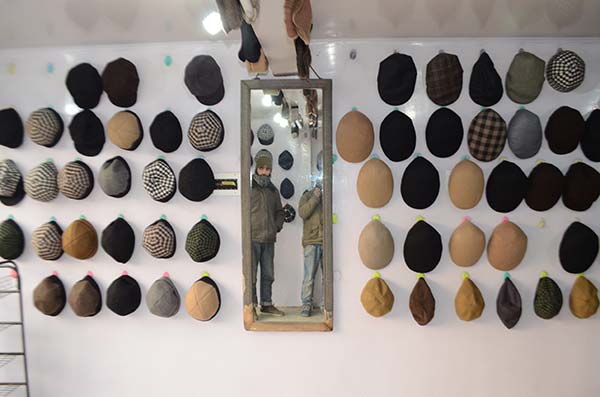After sweeping all three Lok Sabah seats from Kashmir valley following state assembly elections seemed a cake-walk for PDP. But that was not the case. Improving its previous tally by just 7 seats while losing its grounds in South, PDP is already in a fix whether to take recent results as a win or a defeat! Shah Abbas analyzes the dilemma
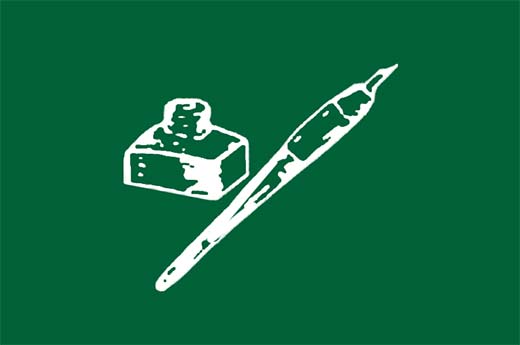 The party born in 1999 ran “an absolute majority” campaign has now every reason to feel upset over poll results. Mufti Mohammad Sayeed’s Peoples Democratic Party (PDP) lost HS Bugh, Devsar, Pahalgam and Shangus segments from its home-turf, South Kashmir. And what probably added a pinch of salt was Nizam’s eleventh hour Bandipora slip. In the list of losers, the maternal uncle of PDP president Mehbooba Mufti, Sartaj Madni also figured. The fractured verdict appeared like a trap for the party riding high on “change” before the results.
The party born in 1999 ran “an absolute majority” campaign has now every reason to feel upset over poll results. Mufti Mohammad Sayeed’s Peoples Democratic Party (PDP) lost HS Bugh, Devsar, Pahalgam and Shangus segments from its home-turf, South Kashmir. And what probably added a pinch of salt was Nizam’s eleventh hour Bandipora slip. In the list of losers, the maternal uncle of PDP president Mehbooba Mufti, Sartaj Madni also figured. The fractured verdict appeared like a trap for the party riding high on “change” before the results.
The September floods seem to be one of the major reasons of drowning Madni, Peerzada Mansoor and Abdul Gaffer Sofi. Madni was the deputy speaker of the twelfth Legislative Assembly who missed his hat-trick from Devsar by a margin of 1511 votes to Mohammad Amin Bhat of Congress. “He [Madni] hardly likes to talk to the ordinary people and keeps himself away as if the commoners are untouchables,” believed Mohammad Sabir, a resident of Akhran village of Devsar. “You see, pride has a fall. That’s exactly what happened to Madni.”
In Devsar, where people are crying hoarse over basic amenities in the twenty-first century, some are busy deconstructing Madni’s defeat. Being a deputy speaker had apparently eluded him to an extent of losing touch with his voters, the villagers say in unison. “If some resident succeeded to meet him after tireless efforts,” Sabir continued, “Madni used to insult them psychologically. It was below his dignity to talk to common herd. So, I believe, people taught him a lesson.”
Madni didn’t come out of his fort to see his people when the floods devastated their fields and crops, a resident of Kellam village, Ghulam Nabi Dar said, “We wished our MLA with us during the testing times of flood but we found him nowhere.” In fact, Dar continued, Madni’s ego rose to such an extent after being elected for two consecutive times that he started mistreated his people.
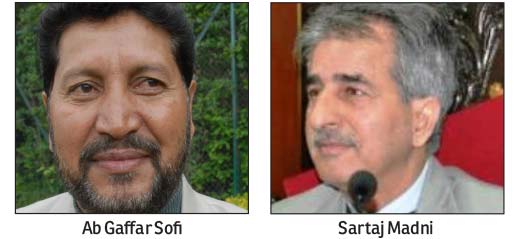 Contrary to Madni, his winning opponent, Bhat is credited to live among the common people even when he was a lawmaker in the past. What probably worked like a charm for Bhat was his stay close to people during floods. “Bhat almost lived in water during the floods to reach to the effected people,” says Hamid Ahmad, a local, “And finally it paid to him.”
Contrary to Madni, his winning opponent, Bhat is credited to live among the common people even when he was a lawmaker in the past. What probably worked like a charm for Bhat was his stay close to people during floods. “Bhat almost lived in water during the floods to reach to the effected people,” says Hamid Ahmad, a local, “And finally it paid to him.”
Like Devsar, majority people of Shangus have almost the same complaints against Peerzada Mansoor, who lost against Congress candidate Gulzar Ahmad by a margin of 2189 votes.
Many, while comparing Mansoor and Gulzar believed both are poles apart in attitude and behaviour towards the common people. Gulzar is also credited to have reached out to the people in pain and distress. It was for Gulzar’s “sympathetic behaviour” that a song about him was on the tongue of majority voters during election campaigning. “Amis Pane Nis Dildaras, Vote Travzuo Gulzaras.”
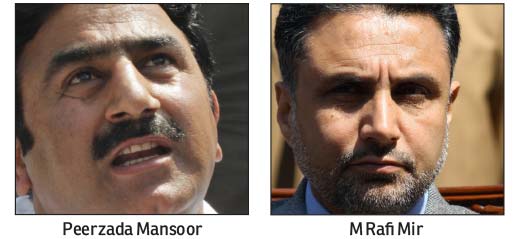 Amid allegations of HS Bugh people against the loosing PDP candidate Abdul Gaffar Sofi who lost to NC’s Abdul Majid by a margin of 1269 votes of not reaching out to them, the analysts blame the party leadership of taking South Kashmir people for granted. “Mufti Mohammad Sayeed should be grateful to Islamabad people who did not see him in last six years despite being their MLA but still they voted for him,” a lawyer in the district court Islamabad said. But, he continued, the people of Shangus, H S Bugh, Pahalgam and Devsar showed their MLA’s the right place for the same reasons.
Amid allegations of HS Bugh people against the loosing PDP candidate Abdul Gaffar Sofi who lost to NC’s Abdul Majid by a margin of 1269 votes of not reaching out to them, the analysts blame the party leadership of taking South Kashmir people for granted. “Mufti Mohammad Sayeed should be grateful to Islamabad people who did not see him in last six years despite being their MLA but still they voted for him,” a lawyer in the district court Islamabad said. But, he continued, the people of Shangus, H S Bugh, Pahalgam and Devsar showed their MLA’s the right place for the same reasons.
The BJP and PDP had hoped to win 44 seats – enough to rule the state. That did not happen and the end result was a fractured mandate.
The results of H S Bugh, Devsar, Pahalgam and Shangus are also a clear indication that people of Kashmir have started to vote on the basis of performance. “Politically, all the unionist parties have same ideology to reach the throne,” the lawyer continued. “They use different ways and routs like communalism and secularism to reach their goal. But finally it matters what the party has done for the people.”
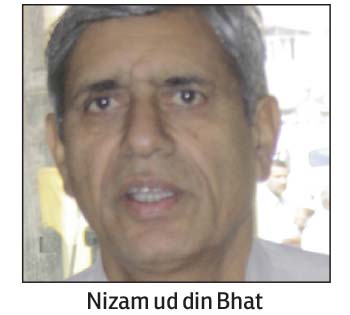 But the reasons behind the defeat of Nizam-ul-Din in Bandipora against Usman Majid are quite different and startling. The mood in this northern town is multiple and miffed. Allegations and counter-allegations are rife in the town. Amid the talks and chit-chats on shop fronts, those who are close to Nizam levelled a serious allegation of “involvement of the men in uniform especially army” in the Bandipora assembly segment. In the same breath, they alleged “cross voting” against PDP candidate who was pitted against former renegade-turned-congressman.
But the reasons behind the defeat of Nizam-ul-Din in Bandipora against Usman Majid are quite different and startling. The mood in this northern town is multiple and miffed. Allegations and counter-allegations are rife in the town. Amid the talks and chit-chats on shop fronts, those who are close to Nizam levelled a serious allegation of “involvement of the men in uniform especially army” in the Bandipora assembly segment. In the same breath, they alleged “cross voting” against PDP candidate who was pitted against former renegade-turned-congressman.
Even Nizam is sniffing something scandalous in the air. “I am trying to find who betrayed me,” Nizam who looked out of sorts after his “incredible” defeat said. “I would like to know and would strive to find the hidden facts that played role in my defeat.” Assuming a tight-lipped stance to name the reason, he pledged, “in near future, the truth will come to fore.”
Back to south, in Pahalgam, where PDP candidate Rafi Ahmad Mir lost against NC’s Altaf Wani alias Altaf Kaloo. There are allegations against Mir in his picturesque constituency of being “non-cooperative” even to the party workers. A known Zaildar or landlord whose late father was also an MLA, Mir is accused of “land grabbing” in the tourist resort and being “non-cooperative” even with his seniors in the party.
His detractor Altaf is no clean slate. He was booked for allegedly “molesting” a TV anchor at Nigeen, Srinagar last year. But his ‘tainted’ image didn’t stop him to defeat Mir by a margin of 904 votes. His victory surprised many given the fact that the constituency was considered to be in the home district of Muftis. Against Mir’s 24328, Altaf secured 25232 votes.
As Altaf’s win and Mir’s defeat reverberated in Pahalgam, one question was almost on everybody’s lips: “What went wrong with Mir?” As the question became rage, PDP workers revealed that they had met the party leadership before polls and sought Mir’s replacement.
“But the party leadership did not heed to our concerns,” said one disgruntled PDP worker from Srigufwara. “We wanted to end the family rule of Mir that has made Rafi impolite, but then, the party didn’t take us seriously.”
At a time when the over 7 decades old party, National Conference has been reduced to mere fifteen seats, analysts caution that the performance of PDP in South Kashmir should act as writing on the wall for all the parties in power politics.
“PDP no doubt defeated the Congress stalwarts like GM Mir, Peerzada Sayeed and NC face in south Kashmir Sakina Itoo,” said Tariq Ali Mir, a Srinagar based journalist, “but it was not any PDP magic but the performance on ground of the losing candidates made the people to vote against them.”
PDP, however, broke the NC fort of Srinagar and won five out of eight segments in the district. This is the only achievement of the party, Tariq said, apart from defeating NC stalwart Abdul Rahim Rather.
The outgoing chief minister Omar Abdullah was right when he said “everything was in favour of PDP this time” but it could not attain much out “of the opportunity”. The party had secured lead in 41 assembly segments early this year during the recent Lok Sabha polls. Still then the “unexpected” results have put the 78-year-old party patron Mufti Mohammad Sayeed in a tight spot to decide about the government formation.
Fifteen years young PDP since its formation used to live in the world of assumptions and expected the same from the people. The party came out with its “Aspirational Agenda” after the end of the first phase of elections to “Remodel the Political Structure, Reconstruct the Economy, Reform the Government, Revive the Civil Society and Rally the Youth” of Jammu and Kashmir apart from “self rule”.
Using a twisted terminology, the party considered only the people who could think “high” in terms of “Remodelling, Reconstructing, Rallying and Self rule” but did not talk of the basic necessities like bijli, sadak and pani.
“PDP stressed on ‘change’ as if the party had a sole agenda of disempowering National Conference,” Tariq said. It created, he continued, a “hate for NC” situation and assumed its victory on 40 seats. “No doubt, NC has its own negatives,” he said, “but what PDP had in its kitty to offer which could have satisfied the common people?”
Many analysts opine, PDP should have preferred basic necessities on “self rule” which does not accomplish the basic needs of commoners like NC’s Autonomy. “PDP should accept once for all that it cannot do anything on the present political status of J&K,” believed Shawkat Ahmad Parray, a political science teacher, “so better to propel on people’s day today needs.” It can help PDP, he believed, to become a cadre-based party and will certainly yield results for it.
Parray said PDP will be doing its last blunder if it supports or gets support of Hindu nationalist party, BJP. “It will be its political suicide,” Parray echoed Omar Abdullah words on Mufti-Modi handshake, “if it happens the party will be considered the reason of bringing anti-Muslim forces in Kashmir.”
PDP enjoyed power in only the third year of its formation when it allied with Congress winning just 16 seats in 2002. But its “blunder” to topple Ghulam Nabi Azad led regime kept it out of the treasury benches after 2008 elections even bagging 21 seats.
After the poll results not “satisfactory” there are people within PDP who allege the “decision making leaders” of distributing party tickets on personal choices and not on merit at many places. According to them it is very essential for the party leadership to introspect even though their efforts bear fruits in Srinagar. “We made inroads in Srinagar but still need to ask ourselves questions about South Kashmir,” a party leader said.















